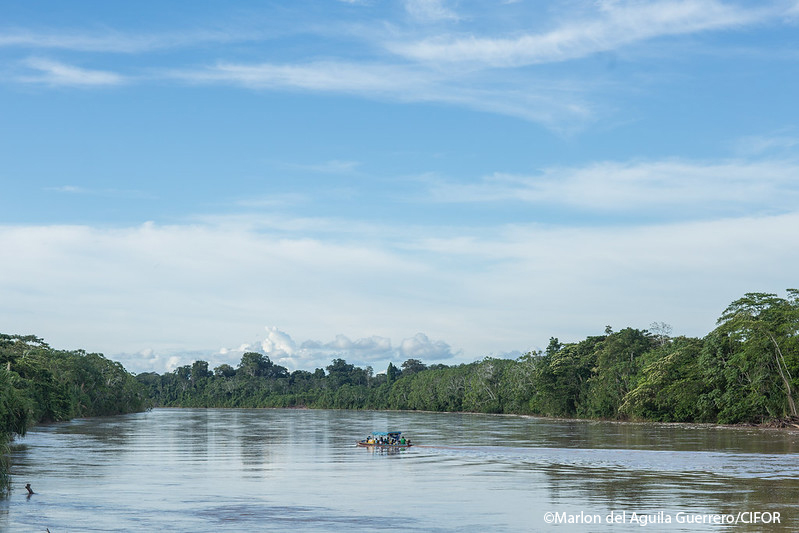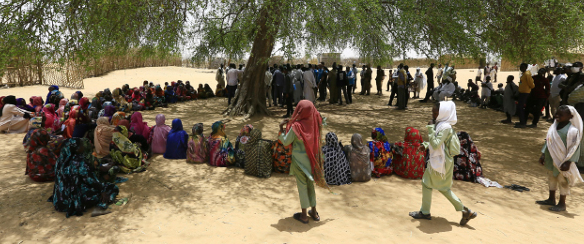At present, around one in four people worldwide live in fragile and conflict-affected situations (FCAS). Even more concerning, nearly 75% of the world’s extreme poor reside in these contexts, and this share is expected to rise to 90% by 2040—meaning almost all of the world’s extreme poor could be living in FCAS. The World Bank defines FCAS as contexts marked by institutional or social fragility (where governance systems are extremely weak) and/or violent conflict, and where politically motivated groups use deadly force to achieve their interests. In the face of growing political, social and economic instability across regions, knowing what works in such contexts is more important than ever to make a positive difference. But do we have the evidence we need to act and get results? 3ie’s Development Evidence Portal (DEP) has some important answers.
Evidence is growing—but it is not enough.
When we search the DEP for rigorous impact evaluations conducted in FCAS (yes, that is one of the DEP filters!), we find 2,517 studies. The studies are nearly evenly split, with just over half using experimental methods and just under half using quasi-experimental designs. The number has been rising steadily over the past 30 years. Nearly two-thirds of these studies have been published in just the past decade, which means decision-makers now have access to a larger and more updated body of evidence.
While the number may seem impressive at first glance, it’s important to put it into perspective. The DEP hosts nearly 18,000 impact evaluations, but only 14%—roughly one in seven—focus on FCAS settings. A small proportion compared to the one in four people living in FCAS worldwide. This points to an important gap in the evidence base for some of the most challenging and high-risk contexts.
This gap might be partly explained by the difficulty of conducting evaluations in FCAS. As highlighted by Hassnain et al. (2021), insecurity, weak data, and political sensitivities make it harder to collect reliable evidence. In addition, in the absence of careful, context-aware approaches, evaluations risk doing more harm than good.
Where the evidence is, and isn’t: What the DEP tells us about FCAS
The latest States of Fragility 2025 report by the OECD highlights that Sub-Saharan Africa (SSA) and the Middle East and North Africa (MENA) regions have the highest shares of countries facing high fragility, although other regions are also showing troubling signs. Across these geographies, the DEP offers a rich resource, with studies from 34 of the 39 countries on the World Bank’s 2025 list of FCAS. About two-thirds of these studies focus on SSA, where countries such as Nigeria, the DRC, Zimbabwe, and Ethiopia each have over 100 evaluations. The MENA region is also well-represented, with nearly 130 studies on countries such as Lebanon, Iraq, and Yemen. Evidence from South Asia highlights Afghanistan, while Myanmar and Timor-Leste feature in the East Asia and Pacific region. In Latin America and the Caribbean, Haiti stands out, and the ongoing war in Ukraine has led to a growing body of studies from Europe.
Evidence across sectors tends to focus more on addressing symptoms of fragility and conflict than tackling its underlying drivers. As in other contexts, health remains the sector with the largest body of evidence (32%), particularly on outcomes related to nutrition, vaccinations, HIV testing or risk mitigation. Agriculture, fishing, and forestry are also prevalent (13%), with evidence on what works to increase income from agriculture, as well as how to preserve biodiversity and increase agricultural production. Issues related to migration, food security, or social attitudes and norms are particularly covered under the evidence related to social protection (12%). However, only 6% of the evidence focuses on interventions that target public administration, which is a key lever for institutional stability and peace.
Time for change: From evidence on FCAS to evidence from FCAS
In contexts where knowledge of the fields and practices is at the core of evidence production, the gap in authorship from FCAS on evidence on this very context is alarming. Only one in 10 studies on FCAS is authored by researchers based in these contexts. In addition, only 24 of the 39 countries on the World Bank’s 2025 FCAS list are represented in the authorship of existing evidence in the DEP. While affiliation data is only a partial indicator, these figures may suggest an underrepresentation of local perspectives.
Context matters in any setting, but in FCAS, it is absolutely critical. As highlighted by Hassnain et al. (2021), evidence generation and use must be grounded in local dynamics to ensure evaluation findings lead to contextually-appropriate actions in FCAS. Strengthening the production and use of contextualized evidence is key to understanding what truly works in FCAS. Without the expertise of those who live through fragility and conflict, can we really say we know what works, how it works, and why?












